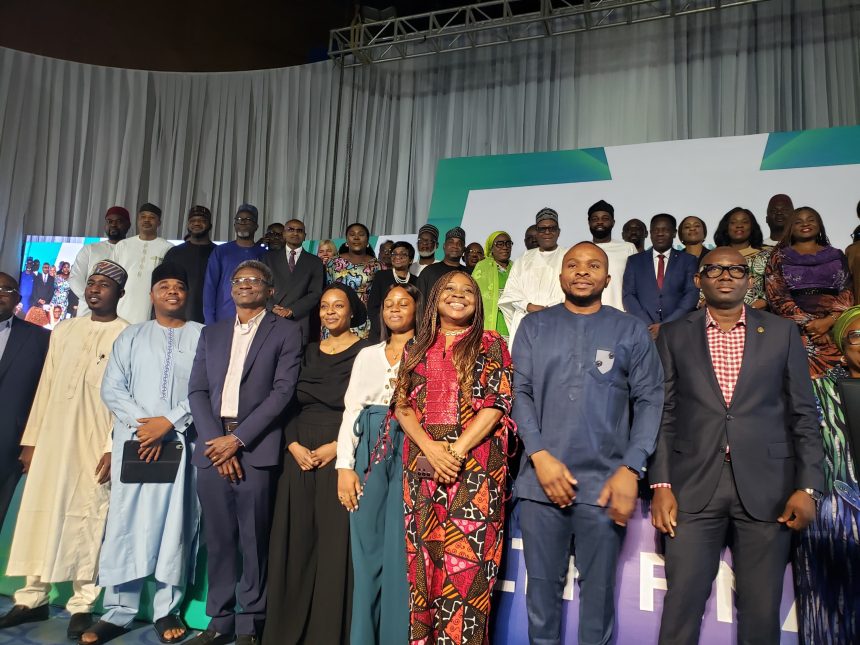The Federal Government has sought sustainable solutions to Nigeria’s health financing challenges to achieve universal health coverage as the current health spending in Nigeria is inadequate.
The Coordinating Minister of Health and Social Welfare, Professor Muhammad Ali Pate, in his keynote address at the National Dialogue on Health Financing in Abuja on Monday, noted that Nigeria’s health transformation depends on synergy among civil society, development partners, private investors, and subnational governments in collaboration with the federal government.
The National Dialogue themed, Reimagining the Future of Health Financing in Nigeria aims at building sustainable healthcare solutions and ensuring universal health coverage for all Nigerians.
While speaking further, Pate said, for decades, Nigeria’s health sector has been underfunded as families bear nearly 70% of healthcare costs out-of-pocket.
According to Pate, only $120 is spent per person on health in Nigeria, with two-thirds of this amount being out-of-pocket. “We were deluded to think that we can build a healthy nation on the back of somebody else’s taxpayer,” Pate said.
“We have to find ways to increasingly invest our own resources, because health, wherever it is found, wherever it’s produced, it’s not cheap.”
Pate outlined the four pillars of Nigeria’s health strategy, which include governance, expanding and improving population health outcomes, unlocking the value chain, and enhancing the resilience of the health system. He noted that a compact between the government, private sector, civil society, and development partners is necessary to guide how they interface with each other.
The Minister also discussed the challenge of making efficient use of limited resources. “With what we have at this point, how do we make use of it? How do we make it efficiently deployed? How do you mobilize efficiently? How do we purchase efficiently? How do we stretch the few dollars that we have at this moment to get the most health for our population?” he asked.
Pate expressed his commitment to finding solutions to Nigeria’s health financing challenges and thanked partners for their support.
“The National Dialogue aims to bring together stakeholders to discuss and find solutions to Nigeria’s health financing challenges and to develop a roadmap for achieving universal health coverage.”
The Director General of the National Health Insurance Authority in his remarks, Dr Kelechi Ohiri, said Nigeria must embrace domestic resource mobilisation to reduce overdependence on external aid to strengthen its health system.
He described the global health financing environment as one of multiple transitions, with donor support shrinking while disease burdens continue to evolve.
“We are at a point of transition to government financing where, going forward, there has to be broader reliance on domestic resources.
“Our health system cannot afford the luxury of transitioning from infectious to non-communicable diseases slowly; we are dealing with both simultaneously,” he said.
Ohiri also raised concerns as Nigeria faced a double challenge of rising non-communicable diseases alongside persistent infectious diseases.
“This is coupled with demographic shifts that demand greater investment in health and education to harness the potential of the country’s young population,” he said.
Highlighting Nigeria’s role in shaping global health policy, Ohiri said that the country was instrumental in the adoption of a landmark resolution at the World Health Assembly on strengthening health financing.
He stated that the resolution committed countries to increase domestic investments, reduce fragmentation caused by donor dependency, and establish stronger systems for tracking and reporting health financing flows.
The NHIA chief said that Nigeria’s financing conversations must put people at the centre, not just infrastructure or models.
“People must be at the centre of the health system and at the centre of what we finance. That is why we are starting this dialogue with voices from the media, civil society, and communities.” He said.
WATCH TOP VIDEOS FROM NIGERIAN TRIBUNE TV
- Let’s Talk About SELF-AWARENESS
- Is Your Confidence Mistaken for Pride? Let’s talk about it
- Is Etiquette About Perfection…Or Just Not Being Rude?
- Top Psychologist Reveal 3 Signs You’re Struggling With Imposter Syndrome
- Do You Pick Up Work-Related Calls at Midnight or Never? Let’s Talk About Boundaries






